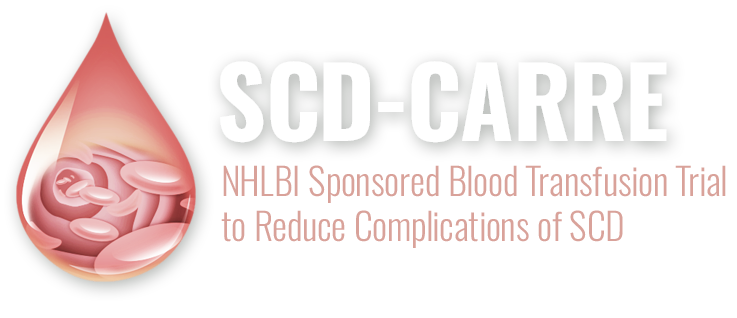About
SCD-CARRE
Sickle cell disease (SCD) is the most common inherited blood disorder in the U.S. It mainly affects African Americans (1 in 500) and Hispanic Americans (1 in 36,000). People with SCD are born with a defect in hemoglobin, which is a protein in red blood cells that carries oxygen throughout the body. In SCD, the red blood cells become rigid and sticky and look like a C-shaped farming tool called a sickle. Sickle cells can get stuck in small blood vessels and block the flow of blood and oxygen to organs within the body. When the blood vessels are blocked, patients experience extreme pain. In addition, adults with SCD have a high risk of organ damage and early death.
The purpose of this study is to carefully evaluate the effects of giving long-term red blood cell exchange transfusion to a group of patients with SCD with certain risk factors for severe organ damage or early death. We want to know if regular exchange blood transfusion will minimize complications in patients with SCD or reduce the chances of new serious problems occurring in patients with sickle cell disease.
If the results show a reduction in complications or new serious problems, then routine red blood cell exchanges may be added to the current standard of care for high-risk patients with SCD.
The Sickle Cell Disease and Cardiovascular Risk—Red Cell Exchange (SCD-CARRE) randomized clinical trial will enroll 150 adult participants with SCD in the United States and Europe. All participants will be followed on a monthly basis for one year. The SCD-CARRE trial is supported by a grant from the National Heart, Lung, and Blood Institute.
©2026 All Rights Reserved | EDC Web / Media Services | Researcher Login
